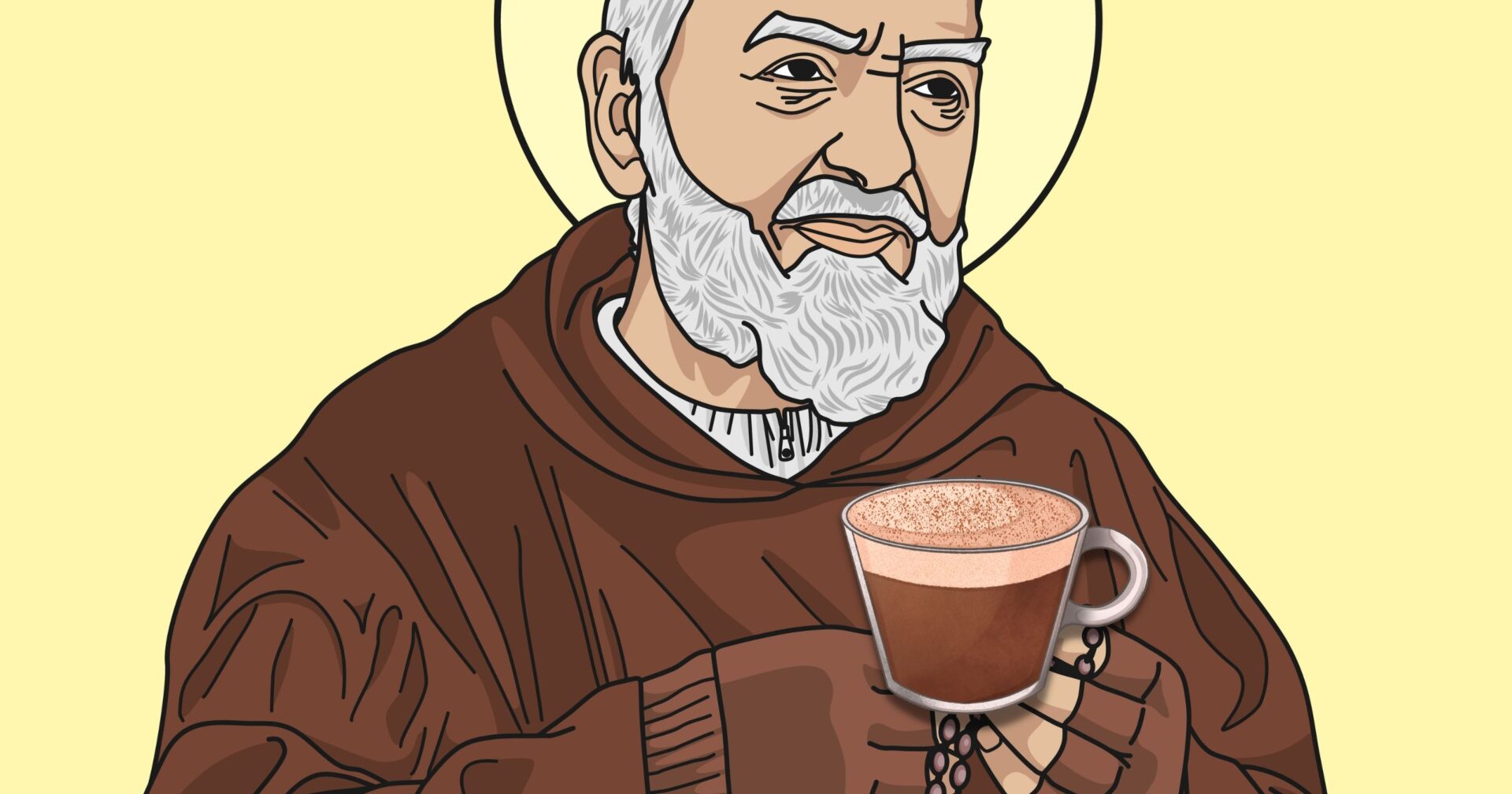Once upon a time in the land of Italy, there were a group of wise and holy men known as the Cappuccini or Capuchin friars.
These men wore brown robes and had a strong desire to live a simple and hard life, just like their founder. They were known for their rough appearance, beards, and brown tunics. As they walked through the streets, children would shout “scappuccini!” after them, which means “without hoods,” but had come to mean “hermits”. They were officially named Cappuccini in 1535 and today, there are some 11,000 Capuchins worldwide.
Their brown robes were so iconic that they even inspired the name of a special kind of monkey known as Capuchin monkeys, who also had brown coats.
But that’s not all, their name also inspired the creation of a special kind of coffee, which was a brown (as opposed to black) coffee lightened by the use of milk or cream, which we now know as a cappuccino.
Some believe the term’s origin can be traced back to Marco d’Aviano, a Capuchin friar said to have invented the cappuccino after the Battle of Vienna in the 1680s.
The term “cappuccino” was first used in Italian in the 1930s, but in German it was called “Kapuziner” even earlier.
One example is the recipe for “Capuzinerkaffee” written by a German author named Wilhelm Tissot in 1790. The process involves boiling the coffee, then adding cream, sugar, and spices, boiling it again, and finally, pouring it over beaten egg whites and yolks and stirring it well.
In 19th and early 20th century Vienna, “Kapuziner” came to mean simply coffee with a little milk added.
Italian scholars acknowledge that the Germans borrowed the term and used it in reference to coffee, but they maintain that the cappuccino as we know it is an Italian creation.
So, next time you enjoy a warm and creamy cappuccino, remember the wise and holy Capuchin friars who inspired its creation. And if you ever see a monkey in a brown coat, you’ll know where it got its name too.
Did you also know coffee is one of the most consumed drinks in the world, second only to water, enjoyed by millions every day?
The drink was not always so ubiquitous, only becoming popular relatively recently during the 16th century. If you can’t start the day without first having your morning cup of coffee, then you should probably thank Pope Clement VIII.














